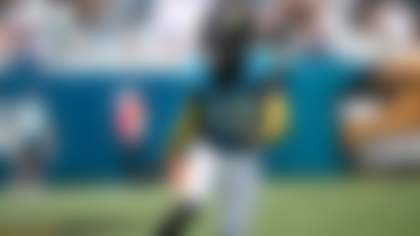By Bill Bradley, contributing editor
Editor's note: This is the first of five capsules explaining the NFL's new player-safety rules that were passed at last week's Annual Meeting.
MONDAY: The Medical timeout.
Who: It gives certified athletic trainer spotter (ATC) stationed in the press box the power to call a medical timeout.
What: If the ATC has visual evidence of a that a player displays obvious signs of disorientation or is clearly unstable; and it becomes apparent that the player will remain in the game and not be attended to by the club's medical or athletic training staff, then the ATC Spotter can contact the Side Judge, who stops play and alerts the team that the player needs immediate medical attention.
When: Any time during the game.
Where: The player is attended to and escorted off the field, where he will be examined by his team's medical staff and, if necessary, an independent neurospecialist. The return-to-play decision will be made by the medical staff consistent with the protocols. In no instance is this evaluation period less than one play unless there is an extended delay unrelated to the player's removal from the game (i.e., timeout, two-minute warning, penalty, etc.). An injury timeout will not be charged to a team who has a player removed during this process.
How: The game and play clock will stop (if running), and remain frozen until the player is removed from the game. Both clocks will start again from the same point unless the play clock was inside 10 seconds, in which case it will be reset to 10. The team of the player being removed will have an opportunity to replace him with a substitute, and the opponent will have an opportunity to match up as necessary. No communication via coach-to-player headsets will be permitted during the stoppage; no member of the coaching staff may enter the playing field; and no player other than the player receiving medical attention may go to the sideline unless he has been replaced by a substitute player.
What they're saying: "It is a bold and important move to allow athletic-trainer spotters to call a timeout in order to have an athlete evaluated. On the sidelines, we evaluate every athlete with a potential head injury ASAP. This decision enhances our ability to do so. I don't know of any other sport where a health-care provider can call a timeout. This is huge for the NFL and for the sports medicine community. I hope that other professional and amateur sports organizations will take notice and follow suit. There are tremendous challenges in stopping soccer games, for example, and that is not just for concussion. There are universal applications to this decision." -- Dr. Javier Cardenas, an independent neurologist who worked the Super Bowl XLIX sideline.



